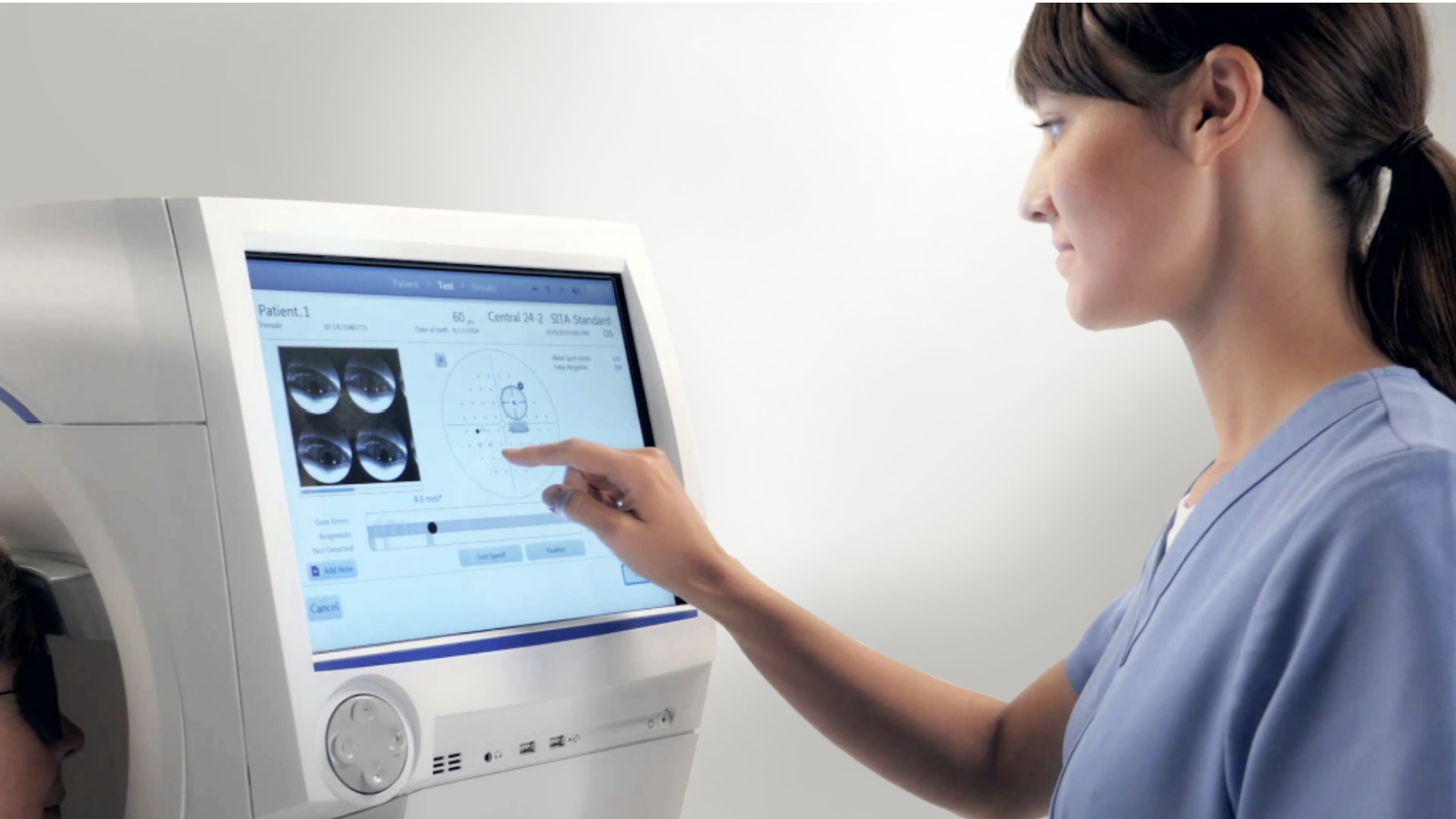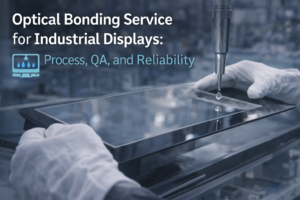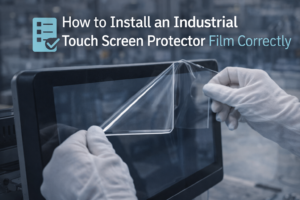Touchscreen technology has become extensive in many industries, including medical applications. Custom touchscreen solutions are essential for creating devices that cater specifically to the needs of healthcare professionals, patients, and the overall medical environment. This article will guide you through finding the right custom touch screen solutions for medical applications, exploring the benefits of custom solutions, key considerations, and the role of companies like Dongguan Ever Glory Photoelectric Co., Ltd in delivering these specialized products.
What are Custom Touch Screen Solutions?
Custom touch screen solutions refer to touch panels and displays specifically designed to meet the unique requirements of a given application. In medical environments, this often means designing touch screens that are durable, easy to clean, and responsive under various conditions. These touch screens can be integrated into medical devices such as patient monitors, diagnostic equipment, medical kiosks, and more.
Why Are Custom Touch Screens Important for Medical Applications?
Medical applications have distinct requirements that set them apart from general consumer electronics. Some of the critical factors include:
- Hygiene and Cleanliness: Medical devices must be regularly clean and disinfected to maintain a sterile environment. A custom touchscreen solution have ability to with materials that are easy to clean and resistant to harsh disinfectants.
- Durability and Reliability: Medical devices us in challenging environments. Custom touch screens can be engineered to withstand drops, scratches, and impacts, ensuring the device’s longevity.
- Precision and Accuracy: Accuracy is paramount in medical applications. Custom touch screens offer precise input responses, which is essential for medical professionals who rely on quick and accurate data.
- Large Sizes for Enhanced Visibility: Large touch displays are often required for medical applications like imaging and diagnostics. A custom touchscreen solution allows you to select the right size, ranging from small 4.3-inch displays to large 75-inch screens.
Key Considerations for Choosing Custom Touch Screen Solutions
Selecting the right touchscreen technology for medical applications involves several factors. Below are some key considerations that will help guide your decision-making process.
1. Touch Screen Technology
There are different touch panel PC technologies, and choosing the right one for your medical device is crucial. The most common touchscreen technologies used in medical applications include:
- Capacitive Touch Screens: These screens are widely used in many medical applications due to their high sensitivity and durability. Capacitive touch screens use the electrical properties of the human finger to detect touch, providing fast and accurate responses.
- Resistive Touch Screens: While less common in modern devices, resistive touch screens are still used in some medical applications, particularly when users wear gloves or need to interact with the device using a stylus.
- Projected Capacitive (PCAP) Touch Screens: These screens provide high accuracy and multi-touch capability, making them ideal for medical applications requiring precise input. They also perform well under various environmental conditions.
2. Screen Size and Resolution
The size of the touch screen is an essential factor in medical applications. For example, a small touch screen may be suitable to handle devices like glucose meters, while larger screens may be needed for diagnostic machines or hospital kiosks. Resolution is equally essential for clear visibility of medical data. High-resolution screens allow for better visualization of detailed images, such as X-rays or ultrasound scans, which are vital for accurate diagnosis and treatment planning.
3. Environmental Considerations
Medical environments often involve unique conditions to consider when choosing a touch screen. These conditions include exposure to moisture, temperature fluctuations, and the need for cleaning with disinfectants. Custom Medical touch screen solutions can be tailored to be:
- Waterproof or Water-Resistant: Touch screens used in medical devices must withstand exposure to moisture, whether from spills or cleaning agents. Choosing a touch screen that is waterproof or water-resistant is essential for maintaining device functionality and hygiene.
- Anti-glare Coating: Medical environments can have intense overhead lighting that creates glare on touch screens. Custom touch screens ability to with anti-glare coatings to improve visibility in bright lighting conditions.
- Chemical Resistance: Medical devices need to be cleaned frequently with disinfectants. A touch screen resistant to harsh chemicals will ensure the device continues functioning correctly over time.
4. Touch Sensitivity and Response Time
The response time and sensitivity of the touch screen are crucial in medical applications. A custom touchscreen solution can be calibrated to meet the specific needs of medical professionals, allowing for quick and accurate inputs. This is especially important in high-stakes environments where time is of the essence, such as during surgery or emergency care.
5. Durability and Robustness
Medical environments can be demanding, with devices subject to frequent handling, exposure to rough conditions, and the potential for accidental drops. A custom touch screen can be designed for enhanced durability, ensuring it can withstand these conditions without compromising performance.
Dongguan Ever Glory Photoelectric Co., Ltd: Your Reliable Partner for Custom Touch Screen Solutions
Dongguan Ever Glory Photoelectric Co., Ltd is a leading manufacturer of custom touch screen solutions, focusing on delivering high-quality capacitive touch panels, touch display modules, touch monitors, and panel PCs. With over 13 years of experience in industrial, outdoor, medical, transportation, gaming, self-service terminal, and marine applications, Ever-Glory is well-equipped to meet the unique requirements of medical devices.
Advantages of Working with Ever Glory
- Industry Expertise: EEver-Glory has been a key player in the touch screen industry for over a decade. Their deep understanding of the medical sector allows them to provide solutions that meet the specific needs of healthcare providers and patients.
- Wide Range of Products: Ever-Glory offers touch screens ranging from small 4.3-inch displays to large 75-inch screens, ensuring clients can find the right size for their medical applications.
- Innovative Technology: As the first professional manufacturer in China to research and produce large-size projected capacitive touch panels, Ever Glory has a strong track record of innovation.
- Customization and Fast Service: Ever Glory’s R&D team consists of 25 highly skilled professionals who can provide fast customization and calibration services for various medical applications.
- Collaboration with Leading IC Solutions: Ever-Glory has experience working with industry-leading IC solutions, including EETI, Ilitek, Weida, Cypress, and Goodix. This expertise allows the company to provide touch screens compatible with various medical devices.
How to Choose the Right Custom Touch Screen Solution for Medical Applications
When selecting a custom touch screen for medical devices, there are several steps you can follow to ensure that you make the right choice:
1. Understand Your Specific Needs
Before contacting manufacturers, it’s important to clearly define your medical device’s requirements. Consider factors such as the type of medical application (e.g., diagnostic, monitoring, or therapeutic), the environment in which the device will be used, and any special features needed, such as multi-touch functionality or glove compatibility.
2. Research Manufacturers
Look for companies with experience in producing custom touchscreen solutions for medical applications. Dongguan Ever Glory Photoelectric Co., Ltd, with its long track record in this field, is a reliable partner for high-quality medical touch screens.
3. Evaluate the Technology
Ensure that the touch screen technology is suitable for the medical environment. Capacitive and projected capacitive touch screens are the best options for most medical applications, providing high sensitivity, accuracy, and durability.
4. Test Prototypes
Before committing to large-scale production, request prototypes to evaluate the touch screen’s performance, durability, and usability. This step ensures that the custom touch screen meets your medical device’s functional and environmental requirements.
5. Consider Post-Purchase Support
Choose a manufacturer that offers strong post-purchase support. Ever Glory, for example, provides ongoing customer service and technical support to ensure that your custom touch screen continues to perform optimally over time.
Conclusion
Finding the right custom touchscreen solutions for medical applications requires careful consideration of factors like screen technology, size, durability, and environmental conditions. By working with experienced manufacturers like Dongguan Ever Glory Photoelectric Co., Ltd, you can ensure that your medical devices are equipped with touch screens that are reliable, durable, and easy to use. Their expertise in capacitive touch panel technology and their focus on customization make them an excellent partner for meeting the medical industry’s demands.
.png)



